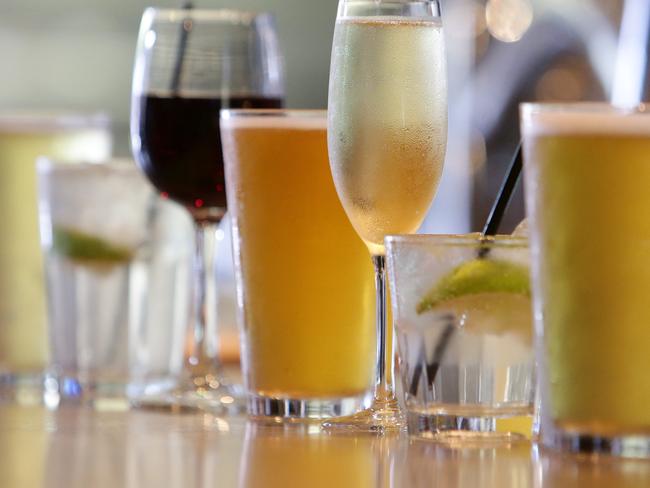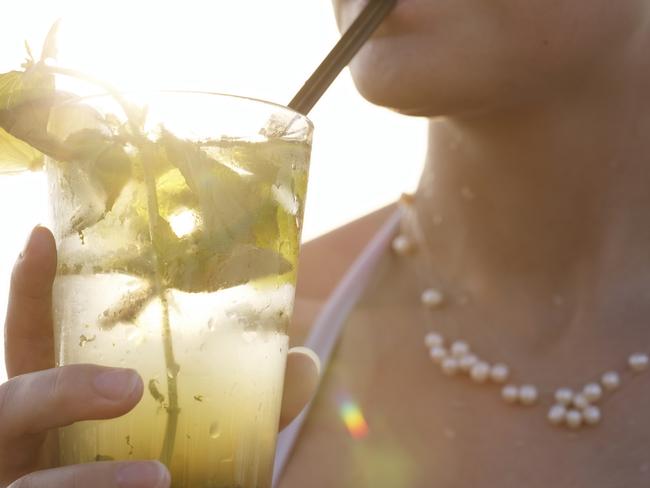Cancer Council targets ‘virtue marketing’ of alcoholic drinks, calls for ban on low sugar, carb claims
Alcohol companies have come under fire for using “virtue marketing” to make their products appear healthier and a leading health body wants low sugar and carb claims stripped from packaging.
Victoria
Don't miss out on the headlines from Victoria. Followed categories will be added to My News.
Some alcohol companies have been slammed for a spike in the use of sneaky marketing tactics that experts warn exploit health-conscious consumers.
A new report released by Cancer Council Victoria (CCV) found “virtue marketing”, which highlights a product’s nutritional benefits, eco-friendliness or plays to a buyer’s social conscience, has increased in Australia by almost 20 per cent in just a decade.
And while legal, the council wants next week’s meeting of Australian and New Zealand Food Ministers to introduce higher standards for alcohol labelling to better protect consumers.
It also wants all carb and sugar claims on alcohol packaging removed.

The council says alcohol causes at least seven types of cancer, including cancer of the mouth, throat, oesophagus, liver, breast and bowel but many Australians are unaware of the link.
Study lead author, Ashleigh Haynes from the council’s Centre for Behavioural Research in Cancer, found some alcohol companies were bombarding buyers with as many as eight claims on a label.
She said many called out “low sugar”, “fair trade certified” or “sustainably grown”.
One in three new products, the report found, carried claims about nutrition like ‘low carb’, “vegan” and “no added sugar” with health-oriented claims the most common.
Dr Haynes says many products target young health-conscious consumers with the biggest spike in claims found on alcoholic cider products (up 50 per cent) and ready-to-drink alcohol products (up 29 per cent).
She said people feel better when they think something is low in sugar or sustainably sourced.
“These companies shouldn’t be allowed to make these types of claims, particularly around low sugar or low carb, to convince people that they’re making a healthier choice when that’s not really the case,” Dr Haynes said.
She says the results of the study confirm it is a growing trend.

Published in the Journal of Studies on Alcohol and Drugs, the researchers looked at claims on the labels of more than 4000 alcohol products sold in Australia between 2013 and 2023.
“These claims have the potential to generate a halo that can detract from a clear understanding of the health effects of alcohol,” Dr Haynes said.
Slamming the alcohol industry for potentially masking the real dangers of alcohol consumption, Dr Haynes said the results clearly showed it was leaning into using marketing claims to “health wash” or “green wash” their harmful and addictive products.
Clare Hughes, chair of the council’s National Nutrition, Alcohol and Physical Activity Committee, says higher standards for alcohol labelling are urgently needed.
“When it comes to alcohol, Australians deserve honest product labels,” she said.
“Alcohol in any amount is harmful to health, and these brands should not be allowed to use marketing tactics that imply alcoholic products are nutritious or good for our diets in any way.
“We urge food ministers to prioritise public health in this upcoming July meeting by introducing policy that will remove carb and sugar claims on alcohol packaging, helping all Australians make more informed decisions about the alcoholic products they purchase.”




